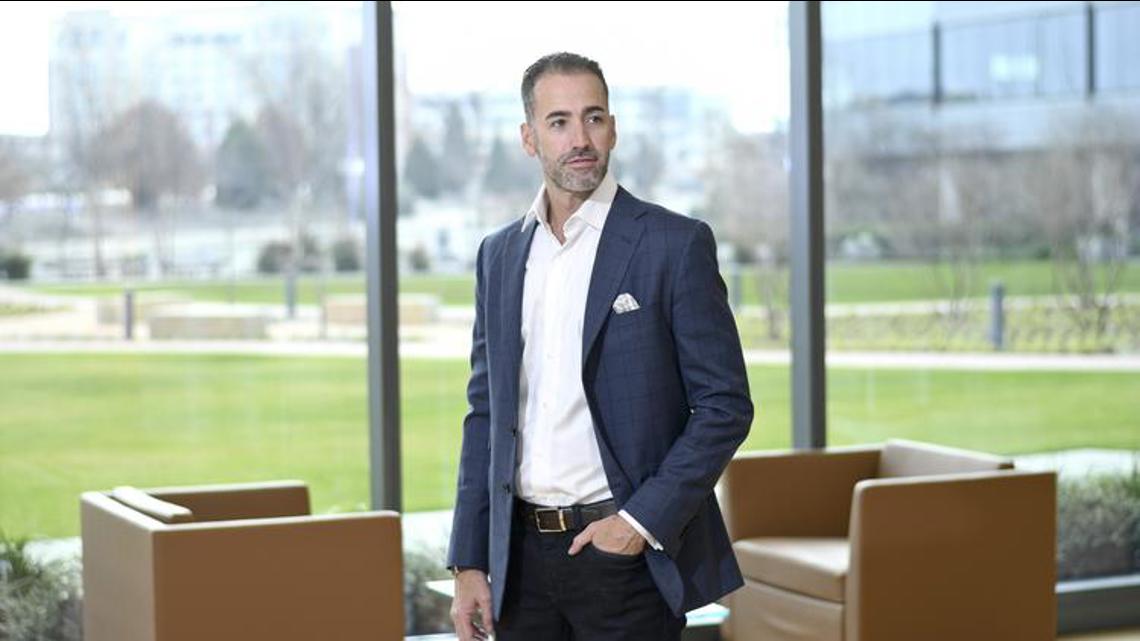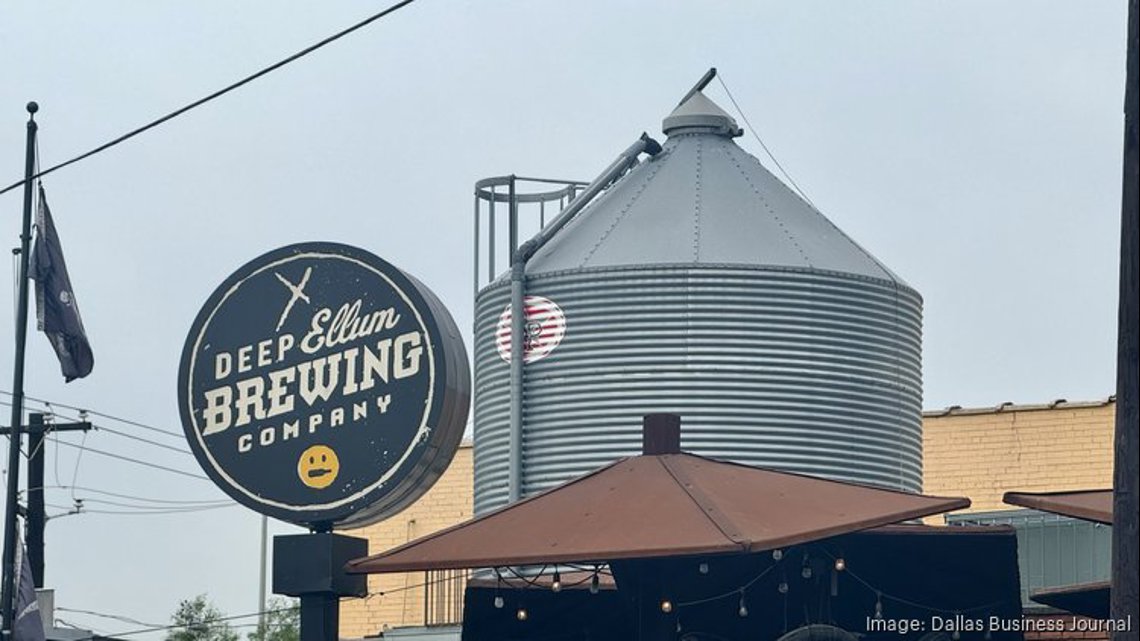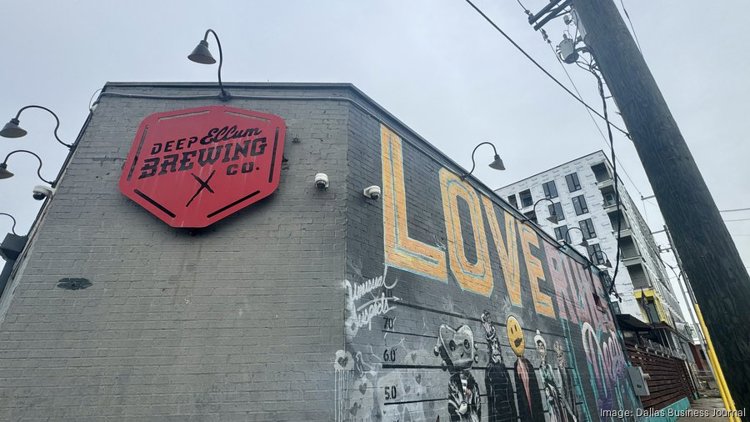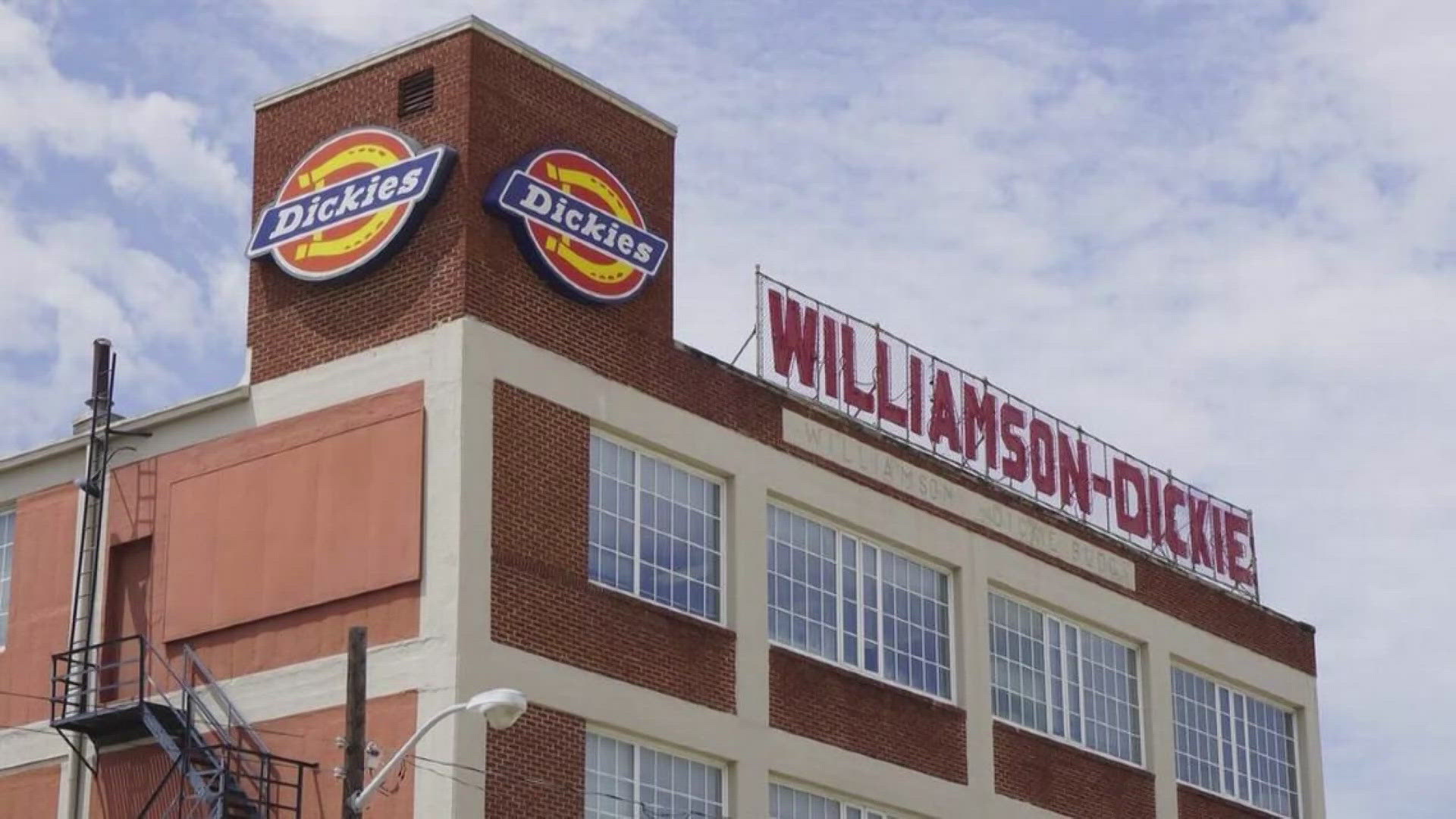DALLAS — Editor's note: The following story was first published in the Dallas Business Journal.
The Deep Ellum home of a brand synonymous with the Dallas craft-brewing community is no more, not long after it was bought by the beverage giant that makes Monster Energy drinks.
Deep Ellum Brewing Co., known for producing the Dallas Blonde ale and Deep Ellum IPA, said May 30 in an Instagram post that it decided to close its taproom and brewhouse. “While our hearts are heavy with this news today, our love for Deep Ellum will always run deep," the company wrote. Two decades ago, the craft brewery was the first to open in Dallas, on property that used to house a paper company on St. Louis Street, according to WFAA.
In a statement to Dallas Business Journal, a spokesperson for the brewery's owner, Monster Beverage Corp. (Nasdaq: MNST) division Monster Brewing Co., said the company will continue to sell beer under the Deep Ellum name — but it will be made at other facilities in its network. The company said it eliminated 25 positions from the taproom and production teams with the closure.
"We are grateful for their hard work, and each person has been offered outplacement support and encouraged to apply for available positions within the company," the spokesperson said in a statement. “The Deep Ellum brand family will continue to be an important part of the Texas beer community. We’re committed to maintaining the beer’s quality and brand’s unique identity while navigating a rapidly changing landscape."
Canarchy Craft Brewery Collective LLC, a Colorado-based craft beer and hard seltzer company, acquired Deep Ellum Brewing in 2018. The move was framed as a way to give Deep Ellum access to more capital and allow the fast-growing brewery to rapidly expand outside the state through the larger company's distribution network.
But in 2020, John Reardon, founder and former CEO of Deep Ellum Brewing Co., said he was fired after filing a lawsuit against Canarchy a month earlier. The lawsuit claimed the beer conglomerate had failed to pay him as outlined in the original sale, Eater Dallas reported. Reardon also said Canarchy deliberately sabotaged the success of the brewery to avoid making profit-based payments to him and that the new owners didn’t maintain a sufficient supply or properly market the beer, according to Eater.


Since then, Reardon has settled the lawsuit and moved on. He told Dallas Business Journal he didn't think much of the closure at first, but was then met with an outpouring of stories and memories from the brewery.
"I can't say I was shocked that they shuttered the Deep Ellum facility, but you know, the Deep Ellum brand was built so strongly on its community impact and footprint that it's just hard to think of one without the other," Reardon said. "We held marriages in there, we had people tattooing the brand on their bodies, I mean, the memories inside of those four walls are just really unmatched."
In 2022, California-based Monster Beverage bought Canarchy, including Deep Ellum Brewing, for $330 million in cash, along with Canarchy's other brands, Cigar City, Oskar Blues, Perrin Brewing, Squatters and Wasatch. The division was renamed Monster Brewing Co. in January.
"My belief for the acquisition was that Monster purchased for the knowledge and the sales staff and the distribution network, so the breweries were kind of a bit of a toy," Reardon said.
Monster sells energy drinks and other beverages, including beers and hard seltzers, and surpassed $7 billion in net sales in 2023. The company is closely linked with The Coca-Cola Co. (NYSE: KO) through distribution agreements and other partnerships. Coca-Cola controls approximately 19.6% of the voting interests of the company, according to a filing with the U.S. Securities and Exchange Commission.
Monster's alcohol business lost $31.5 million in 2022, according to SEC filings. In 2023, the alcohol business lost $81.1 million, which the company attributed to a $42.7 million write-off of acquired intangibles, property and equipment from Canarchy, tied to "challenges in the craft beer and seltzer categories," according to an announcement.
Monster sold $184.9 million of alcoholic beverages in 2023 — up about $83.5 million from a year prior. But about half of that revenue came from The Beast Unleashed, a flavored malt beverage commemorating Monster Energy's 21st birthday, rather than the craft beer brands. In March, Monster laid off a dozen employees at Cigar City in Tampa, Florida, Brewbound reported.
What this means for Dallas' craft brewing scene
Other local brewers did not see the closure coming, including Art Harvey, founder of Westlake Brewing Co., which is located on Commerce Street just a few blocks from Deep Ellum Brewing's shuttered facilities.
"I was indeed surprised by the closing such a short time after the acquisition," Harvey wrote in an email. "They decided to close the kitchen portion of their taproom a few months ago, and I knew that might be a bad sign.”
Harvey said he credits the people of Deep Ellum Brewing for inspiring a wave of breweries over the past decade, and that the mere presence of the other brewery impacted many decisions in creating Westlake Brewing in 2019.
“Their edgy marketing embodied the somewhat scrappy spirit of the neighborhood,” Harvey wrote. “Because they had done such a good job capturing the vibe of the neighborhood in their brand and were located just a few blocks away from us, we were almost forced to go to the polar opposite with our branding and customer experience — it would have been impossible to be ‘more Deep Ellum’ than [Deep Ellum Brewing].”
He said Deep Ellum Brewing had a large influence on his brewery’s choice of neighborhoods. With other breweries and a cidery in the neighborhood, Deep Ellum was able to attract what he called "beer tourism." He expects that to likely decline now that Deep Ellum Brewing is gone.
"The moment we opened our doors, we immediately had a constant flow of roller-bag toting travelers that had either just landed in Dallas or were spending a little time getting to know the city before heading to catch their flight home," Harvey wrote. "I enjoy chatting with customers in our taproom, and almost invariably our visitors are hitting at least one of the two neighborhood barbecue places and a couple of our craft beverage makers."
He said breweries bought by massive companies typically change drastically after the acquisition, some faster than others.
"It might be added perceived bitterness from the 'sellout,' but the beers always taste a little different afterwards," Harvey wrote. "The actual changes are usually fueled by the acquirer's attempts to reap economies of scale by consolidating suppliers and ingredients, removing redundant functions, increasing utilization on existing resources and squeezing out more margin.
"It almost always becomes more about the money and less about the love of beer. Most of those kinds of changes take time. Damage to a loyal fan base, a withering sense of purpose amongst the remaining staff, and less creativity being fueled by passion — all of those things can happen much more quickly."
Molly Reynolds, co-founder and creative director of Celestial Beerworks in the Medical District, said it was a shock to her that a staple of the Dallas craft beer scene was leaving. Her team has collaborated with Deep Ellum's brewers recently and participated in their homebrewing festival.
Reynolds said she thinks the majority of breweries are struggling to get drinkers in the taproom and get people excited about beer — at the same time costs are rising and consumers have more alcohol choices than ever before.
"I could see just a larger company, conglomeration kind of cutting off elements that maybe aren't profitable,” Reynolds said. “And to them, I'm sure it makes sense.”
Most beer ingredients, from the grain and the yeast to cans and labels, are substantially more expensive than they were a year or two ago, according to Reynolds. At the same time, she’s not seeing beer nerds showing up for new releases like they used to, and interest from younger people for things like 21st birthday parties and trivia nights has also dwindled.


“Some of the people that have been very intensely into beer have kind of moved on to either bourbon or aren't drinking nearly as much as they used to just for health purposes,” she said. “But then, we're also kind of seeing a lot of the Gen Z people that are coming of age, they're not interested in beer. … So many people don't have the extra pocket money that they maybe had before and even during the pandemic."
Reynolds said Celestial has almost given up on attracting the younger crowd, focusing instead on millennials and older generations.
She worries the brewers in Deep Ellum won’t find somewhere else to work, as other Dallas-Fort Worth area breweries have already closed. The shutdowns include Brutal Beerworks in North Richland Hills and Shannon Brewing Co. in Keller at the end of last year, Neutral Ground Brewing Co. in Fort Worth in March, and Funky Picnic in Fort Worth in April.
“Hopefully these people will be able to get jobs at other locations and breweries, but it’s a scary thought I'm sure,” she said.
Uncertain fate for property
Reardon said he owns the Deep Ellum Brewing property and has leased it to Monster. An LLC affiliated with Reardon is registered as the property owner with Dallas Central Appraisal District.
The former brewhouse sits in a fast-growing corridor within a neighborhood that attracts a lot of interest from real estate developers.
"Obviously, it's a good piece of property in a great neighborhood," Reardon said. "Wherever it goes, I don't know. But obviously, it's built out as a brewery with a considerable amount of equipment. ... Maybe their intention is to move equipment and then walk from the lease, who knows. They obviously march to their own drum."
Reardon said it's possible another craft brewery could move into the building if Monster exits. So far, he said the company has about four years left on its lease and hasn't expressed any intention to leave — but he doesn't know what they're planning to do in the building, if anything.
"One thing with that neighborhood, it always finds a new iteration of itself," Reardon said. "I think now, it could be a great opportunity for someone else to come and start a community-based brewery in Deep Ellum; the neighborhood's ripe for it."
Deep Ellum is diversifying as a place to live and work in addition to its legacy as an entertainment district.
Over the last few years, Deep Ellum has added hundreds of residential units, many at the apartment complexes south of Canton Street near Deep Ellum Brewing such as Indie, the Crosby and the forthcoming 2800 Taylor complex being built right next door.
The area has also seen new office and industrial projects, such as Mark Cuban's Cost Plus Drugs pilot facility along Taylor Street.
Stephanie Hudiburg, executive director of the Deep Ellum Foundation, declined to speculate on what's next for Deep Ellum Brewing property. But she expects drinkers to continue to flock to the neighborhood.
"We do expect and hope that beer lovers will continue to come to Deep Ellum,” she said. “We do have a track record and a history of being an incubator of incredible entrepreneurs and small businesses that go on to grow their businesses and grow them even well beyond Deep Ellum.”
When asked if it was a disappointment that Deep Ellum Brewing beers will no longer be made in Deep Ellum, she said she was grateful for all the brewery has done for the district.
“We're glad the Deep Ellum Brewing brand will still be available to customers, both here and well beyond," she said. "You're still going to see it in Deep Ellum bars and restaurants, and I fully expect to still see them involved in our community as they have been all these years.”
Reardon described the brewery as a cornerstone of the neighborhood.
"A lot of stories, a lot of laughs, tears and even babies came out of that place," he said. "I always hoped it would be a foundation for the future, you know, a bedrock pillar of Deep Ellum. But Monster saw it otherwise, and you know, who knows where it truly goes from here."



